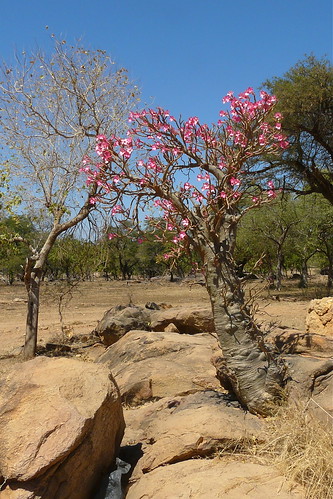Cities of Salt is a novel about an unnamed Middle-Eastern country where desert tribesmen have their lives disrupted by the arrival of the oil industry. Think Saudi Arabia.
It’s 600 pages long and it’s only the first book in a quintet, so this is storytelling on a grand scale; I have to say I’m seriously impressed by it, and considering buying the next one.

There are two things which I think are particularly clever about the way it’s written. The first is that it has a large cast of characters while still feeling like a cohesive narrative. So you get a chapter or two about one person, and then the focus moves to someone else and the first character fades into the background, then after another couple of chapters you move onto a third person; and over the course of the book the cast of characters changes completely. in that way it’s very much the story of a place rather than a person. But it manages to do it in a way which feels very organic; it doesn’t read like a collection of separate stories.
The other thing I like is that even though the story is about the arrival of the (American) oil industry, it is told completely from the perspective of the Arab characters. So even though it is the Americans who are driving events much of the time, by digging wells and building roads and employing the locals, they are peripheral figures in the narrative. They just happen in the background, like the weather, and we only see them in glimpses. They are always behind the fence.
I guess that’s not unusual in post-colonial fiction, but it’s particularly effective here. Not that Saudi Arabia is actually a former colony, but it is similarly a country transformed by the arrival of outsiders. The initial encounter is on a small scale in a wadi in the desert, and the reaction is total bafflement; as the novel moves on, the scope opens out and the relationship between the two worlds becomes more complex and messier.
As soon as the camp was erected, the men paced off the area, put up wire fencing and short white pickets, scattered some strange substance around the tents and sprayed the earth with water that had a penetrating smell. Then they opened up their crates and unloaded large pieces of black iron, and before long a sound like rolling thunder surged out of this machine, frightening men, animals and birds. After several minutes of the rumbling, one of the Americans raised his hand and signalled to another, who extinguished the sound, but it was a long time before it stopped ringing in the ears.
When that was over, as fast as a magic trick, the people still watched everything that went on in silence and fear. When the sun began to sink in the west, it seemed that Wadi al-Uyoun was about to experience a night such as it had never known before. As soon as the animals began to bark and bray at sunset, the machine began to roar again, frightening everyone, only this time the sound was accompanied by a blinding light. Within moments scores of small but brilliant suns began to blaze, filling the whole area with a light that no one could believe or stand. The men and boys retreated and looked at the lights again to make sure they still saw them, and they looked at each other in terror. The animals who drew near retreated in fright; the camels fled, and the sheep stirred uneasily. Miteb stood not far from the place and spoke loudly enough to command attention over the fear and the machine’s noise. “Go back, people of Wadi al-Uyoun! If you don’t go back you’ll get burned and there’ll be nothing left of you.”
This marvellous incident, so crystal clear and yet impossible to believe at first, became with time a routine affair, for the men who for a certain period kept silent and watched everything in fear mixed with anticipation were soon used to it. Ibn Rashed went forward and asked Ghorab to explain how the lights and sound were produced, but in spite of a long and detailed explanation no one understood anything.
Cities of Salt by Abdelrahman Munif*, translated by Peter Theroux, is my book from Jordan for the Read The World challenge.
* or, according to Wikipedia, Abdul Rahman Munif; or using the Library of Congress system, ʻAbd al-Raḥmān Munīf. And just for the sake of completeness: عبد الرحمن منيف.
Apparently ‘Abdul’ is not actually a stand-alone name at all. ʻAbd al– means ‘servant of the’ and is part of a longer name: so Abdul Rahman means ‘Servant of the Benevolent’, Abdul Aziz is ‘Servant of the Almighty’, and so on. Given how many names for God there are in Islam, there are loads of possible variants. So that’s something I’ve learnt today.
» At the camel market in Riyadh is © Charles Roffey and used under a CC by-nc-sa licence.





